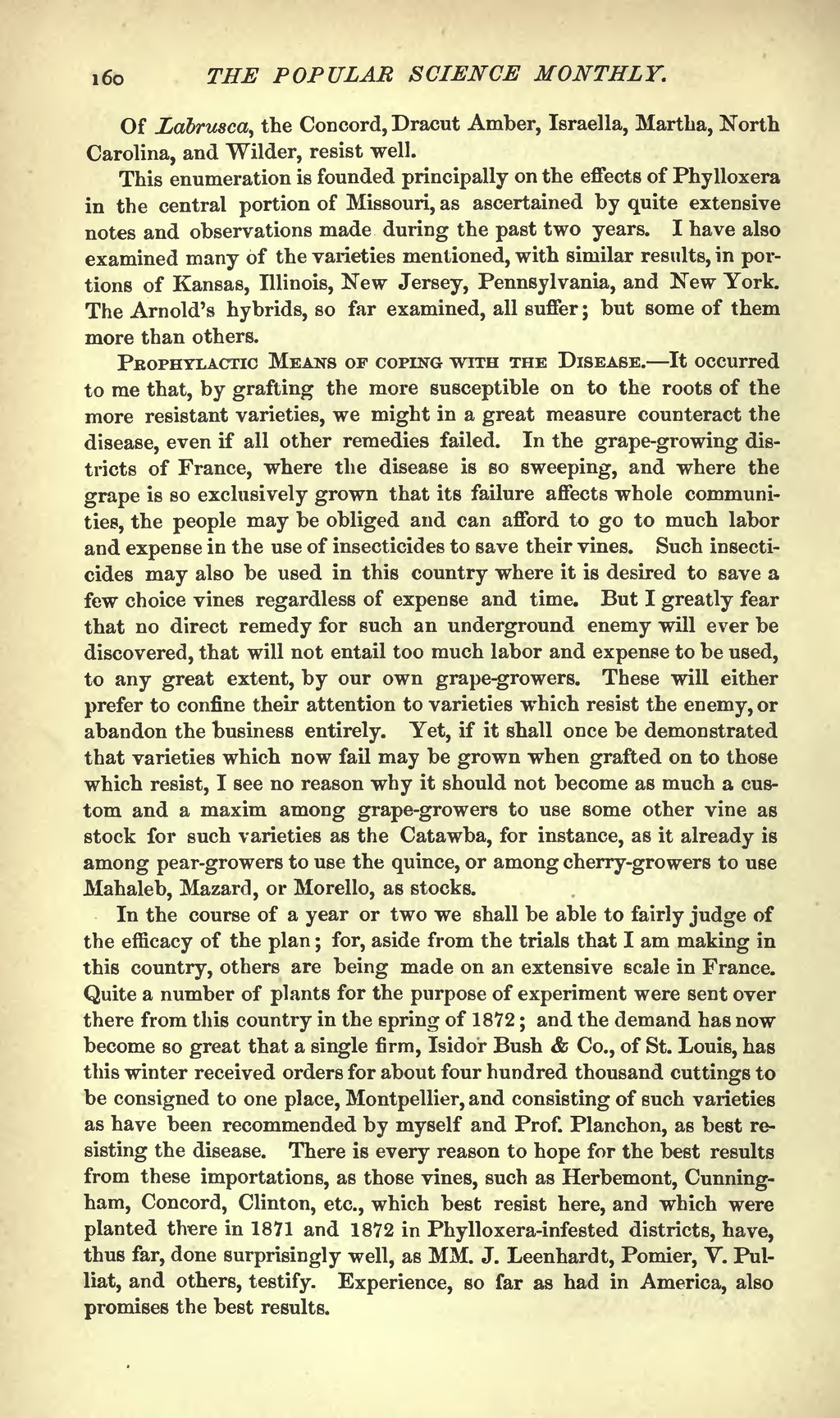Of Labrusca, the Concord, Dracut Amber, Israella, Martha, North Carolina, and Wilder, resist well.
This enumeration is founded principally on the effects of Phylloxera in the central portion of Missouri, as ascertained by quite extensive notes and observations made during the past two years. I have also examined many of the varieties mentioned, with similar results, in portions of Kansas, Illinois, New Jersey, Pennsylvania, and New York. The Arnold's hybrids, so far examined, all suffer; but some of them more than others.
Prophylactic Means of coping with the Disease.—It occurred to me that, by grafting the more susceptible on to the roots of the more resistant varieties, we might in a great measure counteract the disease, even if all other remedies failed. In the grape-growing districts of France, where the disease is so sweeping, and where the grape is so exclusively grown that its failure affects whole communities, the people may be obliged and can afford to go to much labor and expense in the use of insecticides to save their vines. Such insecticides may also be used in this country where it is desired to save a few choice vines regardless of expense and time. But I greatly fear that no direct remedy for such an underground enemy will ever be discovered, that will not entail too much labor and expense to be used, to any great extent, by our own grape-growers. These will either prefer to confine their attention to varieties which resist the enemy, or abandon the business entirely. Yet, if it shall once be demonstrated that varieties which now fail may be grown when grafted on to those which resist, I see no reason why it should not become as much a custom and a maxim among grape-growers to use some other vine as stock for such varieties as the Catawba, for instance, as it already is among pear-growers to use the quince, or among cherry-growers to use Mahaleb, Mazard, or Morello, as stocks.
In the course of a year or two we shall be able to fairly judge of the efficacy of the plan; for, aside from the trials that I am making in this country, others are being made on an extensive scale in France. Quite a number of plants for the purpose of experiment were sent over there from this country in the spring of 1872; and the demand has now become so great that a single firm, Isidor Bush & Co., of St. Louis, has this winter received orders for about four hundred thousand cuttings to be consigned to one place, Montpellier, and consisting of such varieties as have been recommended by myself and Prof. Planchon, as best resisting the disease. There is every reason to hope for the best results from these importations, as those vines, such as Herbemont, Cunningham, Concord, Clinton, etc., which best resist here, and which were planted there in 1871 and 1872 in Phylloxera-infested districts, have, thus far, done surprisingly well, as MM. J. Leenhardt, Pomier, V. Pulliat, and others, testify. Experience, so far as had in America, also promises the best results.
